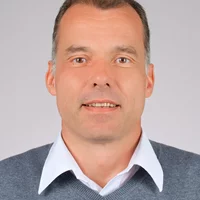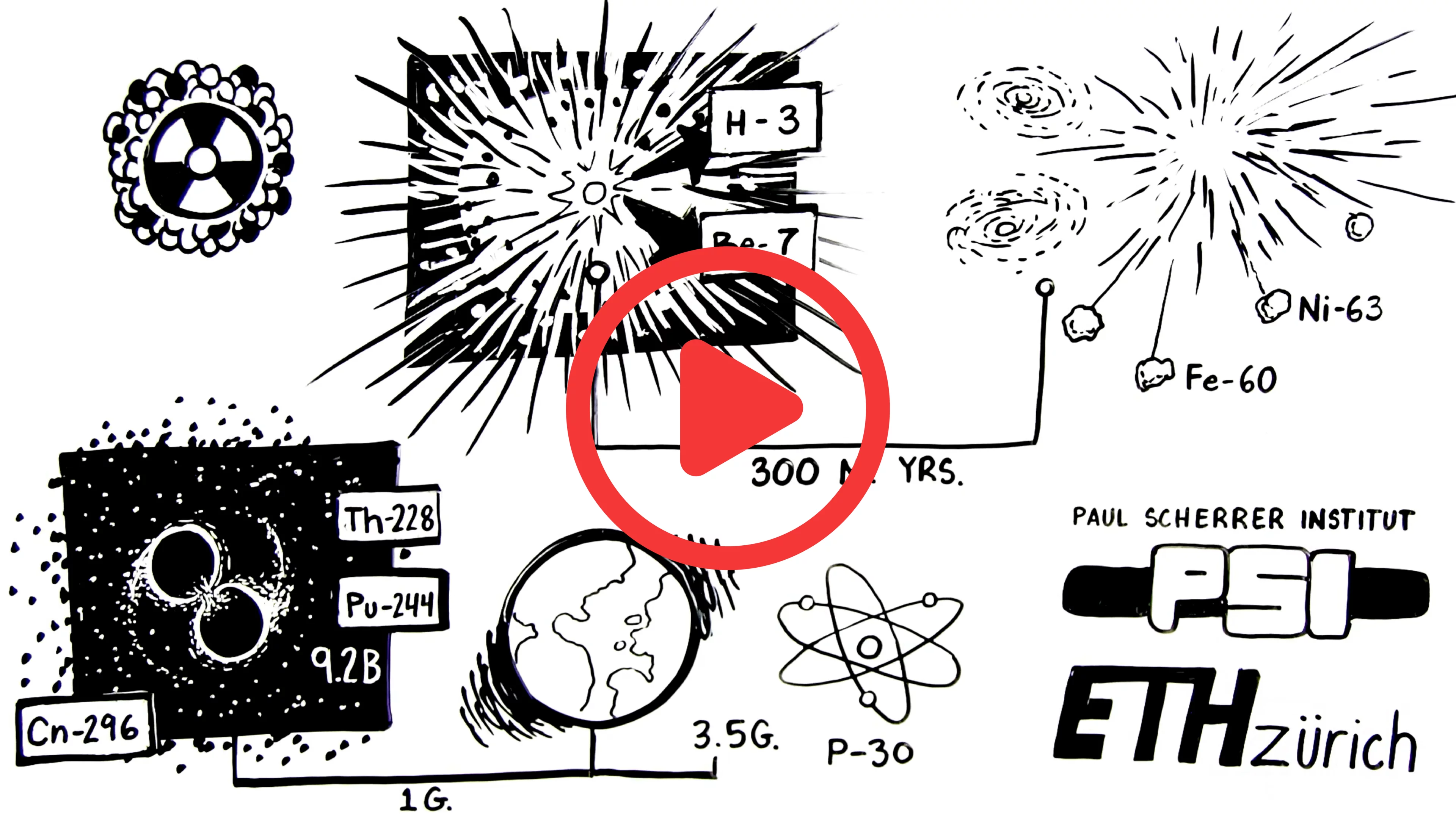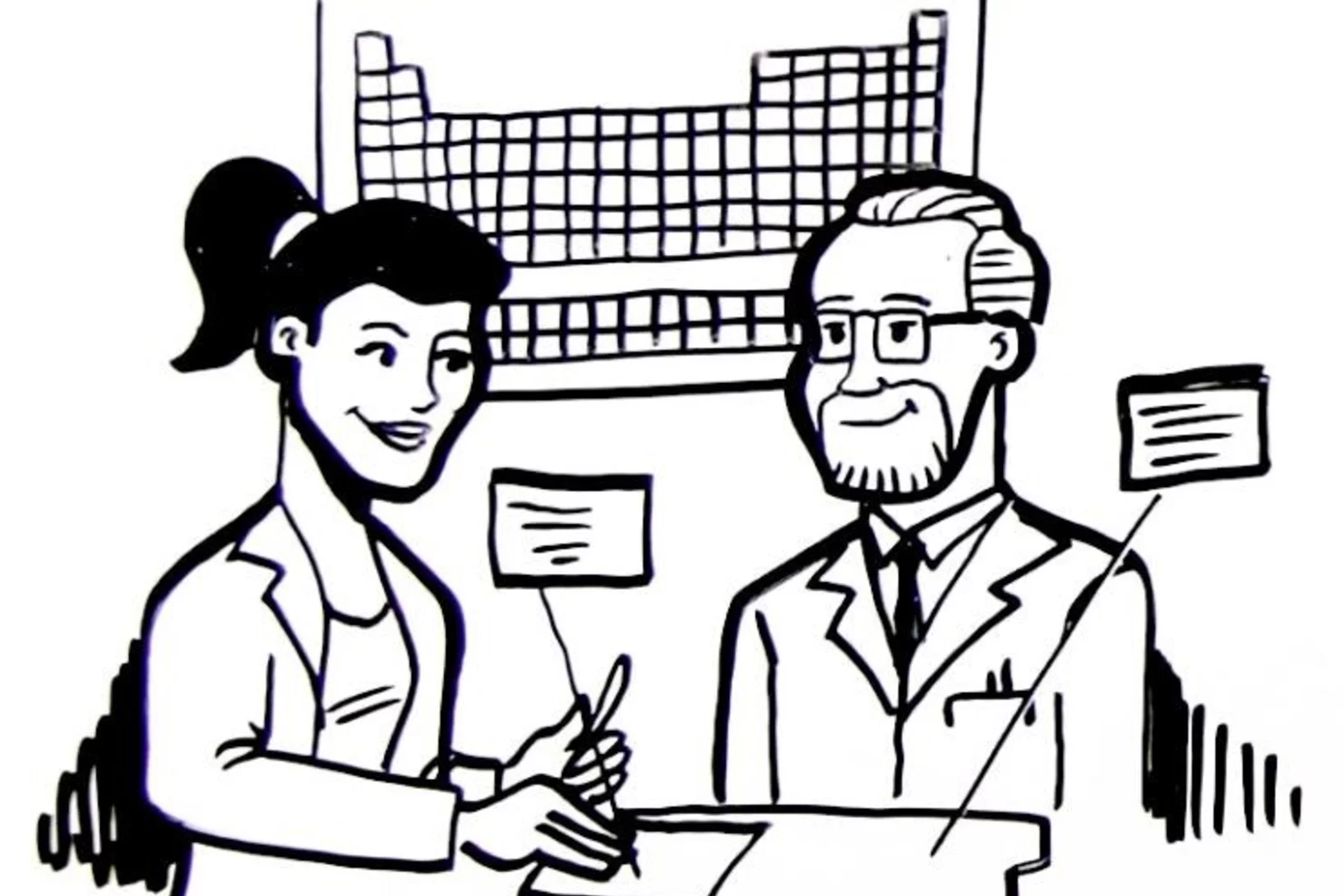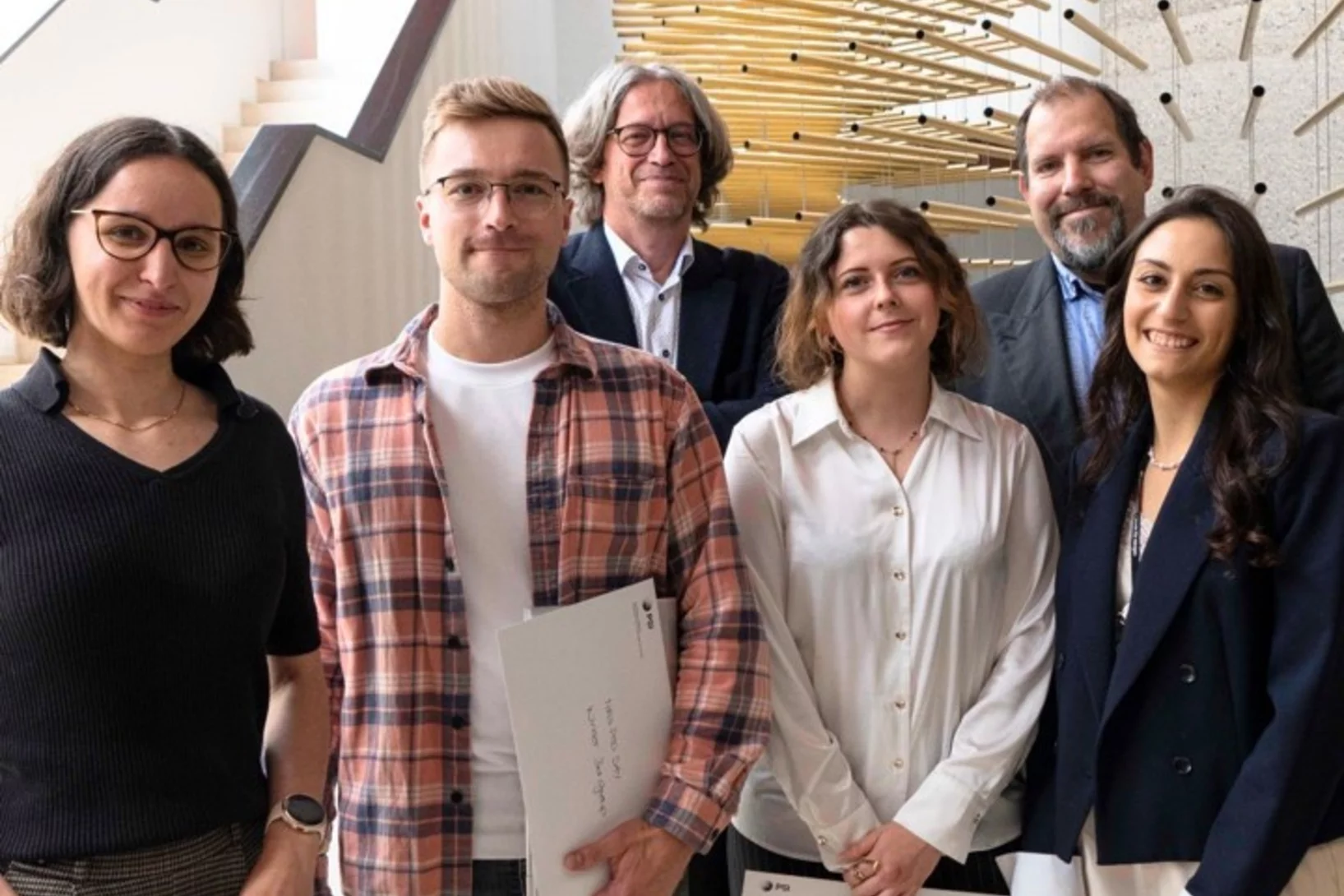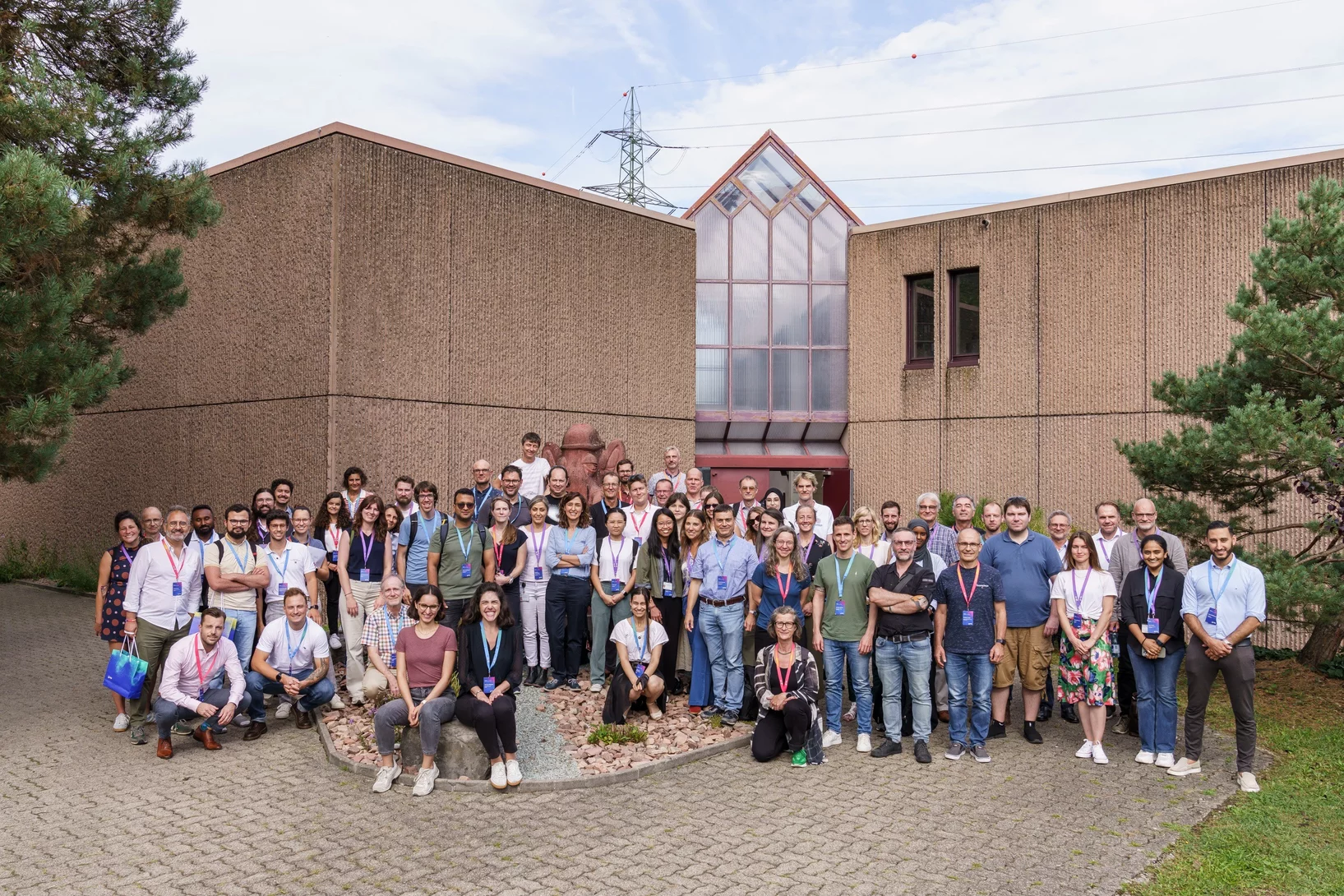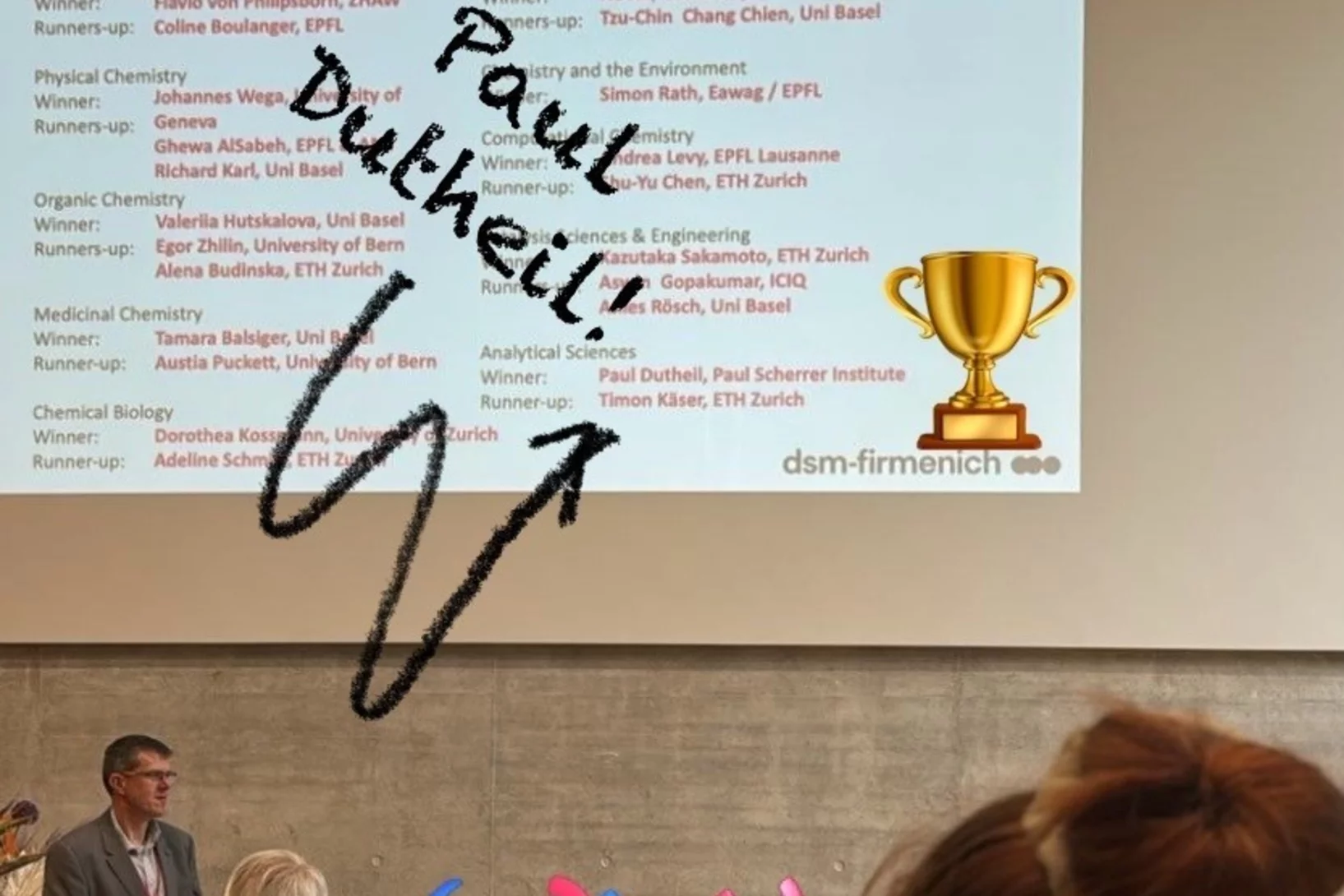The PSI Laboratory of Radiochemistry studies the chemistry of heavy elements, potential radiopharmaceuticals and radionuclides in liquid metals.
Lab News & Scientific Highlights
Exploring the heavy end of the Periodic Table – SRF interview with Patrick Steinegger and Christoph Düllmann
Daniel Theis from Swiss Radio and Television (Schweizer Radio und Fernsehen, SRF) spoke with Christoph Düllmann (GSI Helmholtz Centre for Heavy Ion Research & Johannes Gutenberg University Mainz) and our own Patrick Steinegger (Heavy Elements group at PSI and ETH Zürich) about what it looks like “Am schweren Ende des Periodensystems” (English: At the heavy end of the periodic table).
🎉Outstanding Performance by LRC Students in NES 2025 Best Student Awards 🏆
We are pleased to share that two of our PhD students, Noemi and Vlad (first and second from the left in the photo), have been awarded Best NES Student of 2025 in their respective categories!
👏 Vlad received the award in the 3rd-year PhD category for his research on tellurium evaporation from lead-bismuth eutectic (LBE), a key coolant in Generation IV nuclear reactors. His work, which focuses on understanding chemical species formation and the effects of humidity, provides important insights for improving the safety and reliability of advanced reactor systems.
👏 Noemi, recognized in the 4th-year PhD category, earned this honor for the second time (she was also awarded in 2022 as a 1st-year PhD student). Her project, "Enhancing Target Stability for Superheavy Element Production via Coupled Reduction," contributes valuable knowledge to the development of stable target materials for cutting-edge nuclear physics experiments.
We’re also proud to recognize Pasolini Sofia and Kou Xuandong, who were finalists in their respective categories:
🏅 Sofia presented her PhD project, "Radiolanthanide Production In Core (RAPIC)", focusing on innovative approaches for isotope production within reactor environments.
🏅 Xuandong was recognized for his work titled "Fission Product Release Behavior in GEN-IV Reactors", exploring crucial aspects of radioactive species behavior in next-generation nuclear systems.
Their achievements reflect the depth and impact of the research conducted in our program. Congratulations to all four!
PRISMAP Radiolanthanides Workshop: Advancing Cancer Therapy
The PRISMAP Radiolanthanides Workshop took place at the Paul Scherrer Institute in Switzerland from September 3 to 5, 2024. This influential three-day event gathered leading experts to review the latest advancements in radiolanthanides—radioactive elements at the forefront of cancer therapy. The workshop showcased cutting-edge developments in radiolanthanide production and explored their applications in both preclinical and clinical settings. A key highlight was an insightful panel discussion on the "Clinical Translation of Terbium-161 and Lessons Learned," which provided valuable takeaways for the future of cancer treatment. The event received extensive media coverage and was recently featured by the Swiss Society of Radiopharmacy and Radiopharmaceutical Chemistry (SGRRC)
SCS Fall Meeting 2024 and Paul
On September 5, 2024, the Fall Meeting 2024 of the Swiss Chemical Society took place. The annual event attracts young (and old) chemists from all over Switzerland and gathers them at one of the country’s major universities. This year’s edition was held at the University of Fribourg. While most PhD students of LRC participated with poster presentations, Jennifer Wilson and Michael Hofstetter managed to secure themselves one of the rare spots for an oral presentation. Among many outstanding contributions, Paul Dutheil won the Best Poster Award - congratulations from the whole LRC to our honorary member, Paul! Well done :)
LRC Annual Reports
The Annual Reports of the LRC contain accounts of ongoing scientific research and provide an overview of the variety of topics investigated in our laboratory. Until 2015, they comprise results achieved within the former Laboratory for Radio- and Environmental Chemistry (LCH).
